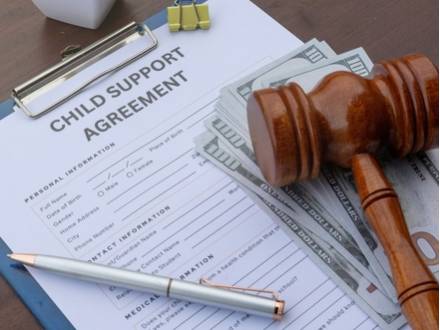Recent Blog Posts
How Does Illinois Law Address Relocation by a Parent After Divorce?
 Parental relocation is more common than many people realize. It can quickly create legal and emotional challenges for families. A recent working paper from the U.S. Census Bureau found that children are significantly more likely to change residences around the time of a divorce, with about 13 percent moving in a given year near the divorce period.
Parental relocation is more common than many people realize. It can quickly create legal and emotional challenges for families. A recent working paper from the U.S. Census Bureau found that children are significantly more likely to change residences around the time of a divorce, with about 13 percent moving in a given year near the divorce period.
As these transitions continue to affect families in 2026, understanding your rights in a child custody case is essential. If you are dealing with a potential move, our Oakbrook Terrace, IL child custody lawyers can help you evaluate your options and protect your relationship with your child.
How Zakat and Charitable Giving Can Be Reflected in an Estate Plan
 Charitable giving is an important part of many estate plans in the United States. Americans donated about $592.5 billion to charitable causes, according to Giving USA 2025’s annual report for 2024. Many people plan ahead to support causes they care about.
Charitable giving is an important part of many estate plans in the United States. Americans donated about $592.5 billion to charitable causes, according to Giving USA 2025’s annual report for 2024. Many people plan ahead to support causes they care about.
For Muslim families, Islamic wills and trusts often include zakat and other charitable goals. Working with DuPage County, IL Islamic estate planning lawyers can help make sure those goals are clearly reflected and legally protected in 2026.
How Can Zakat Be Addressed in an Illinois Estate Plan?
Many Muslim families want their estate plan to account for unpaid zakat and future charitable giving. An Illinois estate plan can include clear instructions about how much should go toward charitable purposes and when those payments should be made.
How Are Children’s Best Interests Determined in Illinois?
 As of 2026, Illinois family law still requires courts to use a best-interests analysis in every case involving children, including custody and parenting time decisions. And court interference is common. For example, in a 2025 report published by the Illinois Department of Children and Family Services, more than 17,000 children and youth were listed as being in DCFS care statewide.
As of 2026, Illinois family law still requires courts to use a best-interests analysis in every case involving children, including custody and parenting time decisions. And court interference is common. For example, in a 2025 report published by the Illinois Department of Children and Family Services, more than 17,000 children and youth were listed as being in DCFS care statewide.
If you are facing a custody dispute, an Oakbrook Terrace, IL child custody lawyer at Farooqi & Husain Law Office can help you understand how those decisions are made and how they apply to your family.
What Does "Best Interests of the Child" Mean Under Illinois Law?
In Illinois, the "best interests of the child" standard has a clear legal meaning. It is not based on opinions or personal beliefs. The goal is to create a parenting plan that supports the child’s physical, emotional, and educational needs over time.
How Do I Know When to Settle and When to Go to Trial in a High-Net-Worth Divorce?
 In a high-net-worth divorce, the decision to settle or go to trial can have lasting implications for your financial security, privacy, and future. These cases frequently involve business valuations, investment portfolios, multiple properties, and intricate income structures. Understanding the strategic advantages and risks of each option is essential before moving forward.
In a high-net-worth divorce, the decision to settle or go to trial can have lasting implications for your financial security, privacy, and future. These cases frequently involve business valuations, investment portfolios, multiple properties, and intricate income structures. Understanding the strategic advantages and risks of each option is essential before moving forward.
Our experienced DuPage County, IL divorce lawyers can help. There is no one-size-fits-all answer. The right decision depends on the specific facts of your case, your priorities, and what matters most to protect your long-term financial position.
Should I Settle or Go to Trial in a High-Net-Worth Divorce?
At its heart, deciding between settling or going to trial is about how much control you want to keep. Settling a case lets you play a bigger role in shaping the outcome, while a trial means a judge makes those choices for you.
What Happens to Your Pets in Your Illinois Will?
 When people think about drafting a will, they typically think about things like how homes, savings, and heirlooms will be passed. However, what happens to a beloved pet after its owner passes away? Under Illinois law, animals are not treated as legal heirs. However, there are ways to make sure a pet continues to receive care and attention.
When people think about drafting a will, they typically think about things like how homes, savings, and heirlooms will be passed. However, what happens to a beloved pet after its owner passes away? Under Illinois law, animals are not treated as legal heirs. However, there are ways to make sure a pet continues to receive care and attention.
The Oakbrook Terrace, IL estate planning lawyers at Farooqi & Husain Law Office can help you create a plan that protects your assets and your pets.
Can You Leave Money or Property to a Pet in Illinois?
In Illinois, pets are legally considered property. Because of this, you cannot leave money or assets to a pet directly. However, you can leave money for your pet’s care. Many pet owners do this by naming a trusted person in their will to take responsibility for the animal and manage funds that have been set aside for the pet’s needs.
How Mediation Can Help in Islamic Divorce Disputes
 Ending a marriage is never easy, especially when faith and legal obligations are both involved. Muslim couples in Illinois often need a process that honors Islamic principles while also meeting state legal requirements. Mediation gives you a peaceful and private way to settle disagreements without litigation. Our experienced DuPage County, IL Islamic divorce lawyers can help you understand how mediation works under both Islamic and Illinois law.
Ending a marriage is never easy, especially when faith and legal obligations are both involved. Muslim couples in Illinois often need a process that honors Islamic principles while also meeting state legal requirements. Mediation gives you a peaceful and private way to settle disagreements without litigation. Our experienced DuPage County, IL Islamic divorce lawyers can help you understand how mediation works under both Islamic and Illinois law.
What Is Mediation in an Islamic Divorce?
Mediation is a process where you and your spouse meet with a neutral mediator. The mediator helps both of you talk through disagreements and reach fair solutions. In Illinois, courts often encourage or even require mediation in family cases. For example, under 750 ILCS 5/602.10, parents may need to attend mediation before a judge will hear a dispute about parenting time or decision-making.
When Should You Use an Irrevocable Trust for Asset Protection?
 A strong estate plan can help you protect your home, savings, and long-term financial stability. One tool many families consider is an irrevocable trust. Asset protection focuses on keeping your property safe from future risks, and an irrevocable trust is one of the strongest tools available to separate your personal assets from potential creditors or claims. For guidance that is tailored to your situation, talk to our Oakbrook Terrace, IL irrevocable trust lawyers who can explain your options and help you determine whether this type of trust suits your unique goals.
A strong estate plan can help you protect your home, savings, and long-term financial stability. One tool many families consider is an irrevocable trust. Asset protection focuses on keeping your property safe from future risks, and an irrevocable trust is one of the strongest tools available to separate your personal assets from potential creditors or claims. For guidance that is tailored to your situation, talk to our Oakbrook Terrace, IL irrevocable trust lawyers who can explain your options and help you determine whether this type of trust suits your unique goals.
What Is an Irrevocable Trust?
An irrevocable trust is a legal arrangement that allows you to transfer ownership of certain assets into a trust that cannot be easily changed or undone. Under the Illinois Trust Code, once you place property into an irrevocable trust, you give up direct control over those assets. A trustee manages the property based on instructions you outline in the trust document.
How Can I Change My Child Custody Agreement in Illinois?
 When your circumstances change after a custody order is issued, you may need to adjust your parenting plan. Illinois law allows you to ask the court to change your arrangement. However, you must show that the change is necessary and good for your child. To begin, you need an experienced DuPage County, IL child custody lawyer. Custody modification cases can be complicated, especially if your co-parent disagrees with the change. Your attorney will ensure that you have the best chance at finding an arrangement that works for everyone involved.
When your circumstances change after a custody order is issued, you may need to adjust your parenting plan. Illinois law allows you to ask the court to change your arrangement. However, you must show that the change is necessary and good for your child. To begin, you need an experienced DuPage County, IL child custody lawyer. Custody modification cases can be complicated, especially if your co-parent disagrees with the change. Your attorney will ensure that you have the best chance at finding an arrangement that works for everyone involved.
When Can You Ask the Court To Change Custody in Illinois?
Illinois law refers to "custody" as the allocation of parental responsibilities. This terminology includes both decision-making authority and parenting time, commonly called visitation. Once the court enters a final custody order, you usually must wait two years before asking for a major change. The exception is if your child’s health or safety is at risk.
Creating a Halal Family Trust in Illinois To Avoid Riba and Probate
 For Muslim families in Illinois, estate planning is about more than money. It is also about following Islamic principles while protecting loved ones. A halal family trust can help you do both. With the right plan, your trust can prevent riba (interest-based gains) and avoid the probate process. It can also make sure your assets are shared fairly according to Islamic values. Our Oakbrook Terrace, IL Islamic estate planning lawyers can help you create a trust that meets both state and religious requirements.
For Muslim families in Illinois, estate planning is about more than money. It is also about following Islamic principles while protecting loved ones. A halal family trust can help you do both. With the right plan, your trust can prevent riba (interest-based gains) and avoid the probate process. It can also make sure your assets are shared fairly according to Islamic values. Our Oakbrook Terrace, IL Islamic estate planning lawyers can help you create a trust that meets both state and religious requirements.
What Makes a Family Trust Halal?
A family trust is a legal arrangement that allows you to manage your assets while you are alive. After you pass away, it ensures those assets are transferred to the people you choose. To make a trust halal, it must follow both Illinois and Shariah law. This means it should not earn or pay interest and must be managed honestly and responsibly (amanah). It should also divide assets according to Islamic inheritance rules (mirath).
When Can I Stop Paying Child Support in Illinois?
 Rulings on child support are based on the principle of supporting a child’s best interests. Because of this, decisions about when support ends can vary from case to case. If you have concerns about making or receiving child support payments, we can help. Our experienced DuPage County, IL child support lawyers will explain the law, your rights, and the legal options available to you.
Rulings on child support are based on the principle of supporting a child’s best interests. Because of this, decisions about when support ends can vary from case to case. If you have concerns about making or receiving child support payments, we can help. Our experienced DuPage County, IL child support lawyers will explain the law, your rights, and the legal options available to you.
Does Child Support Ever Continue Beyond the Age of 18?
According to Section 505 of the Illinois Marriage and Dissolution of Marriage Act, child support usually lasts until a child turns 18. If the child is still in high school at that age, payments may continue until graduation or until they turn 19, whichever comes first. Additionally, the court can extend support when it benefits the child.


 630-909-9114
630-909-9114




